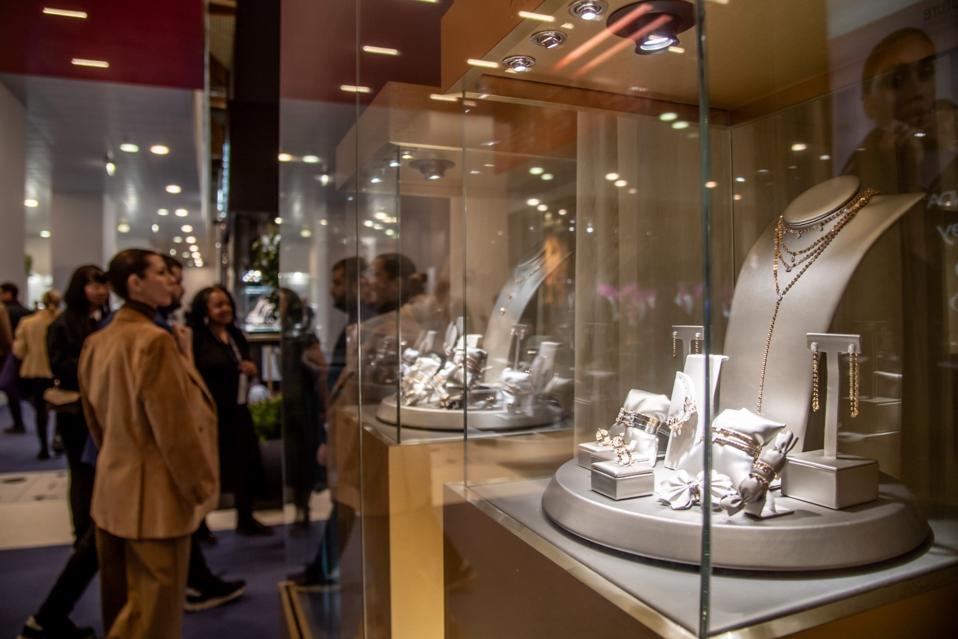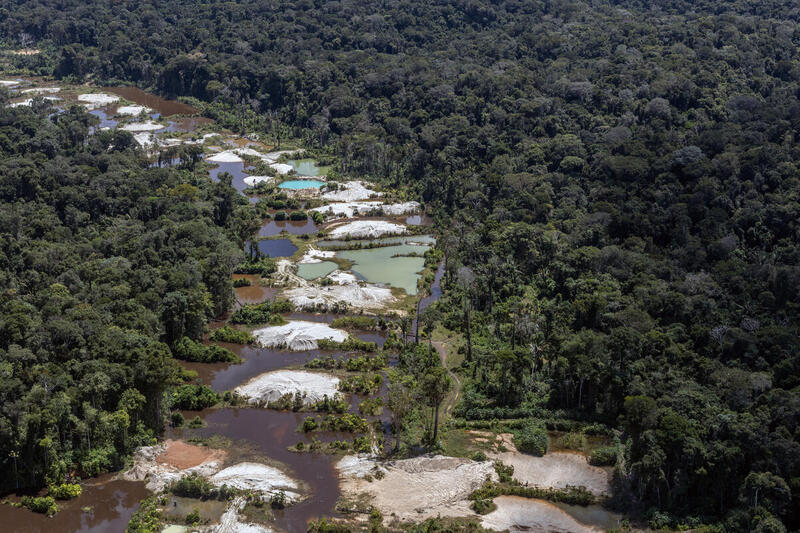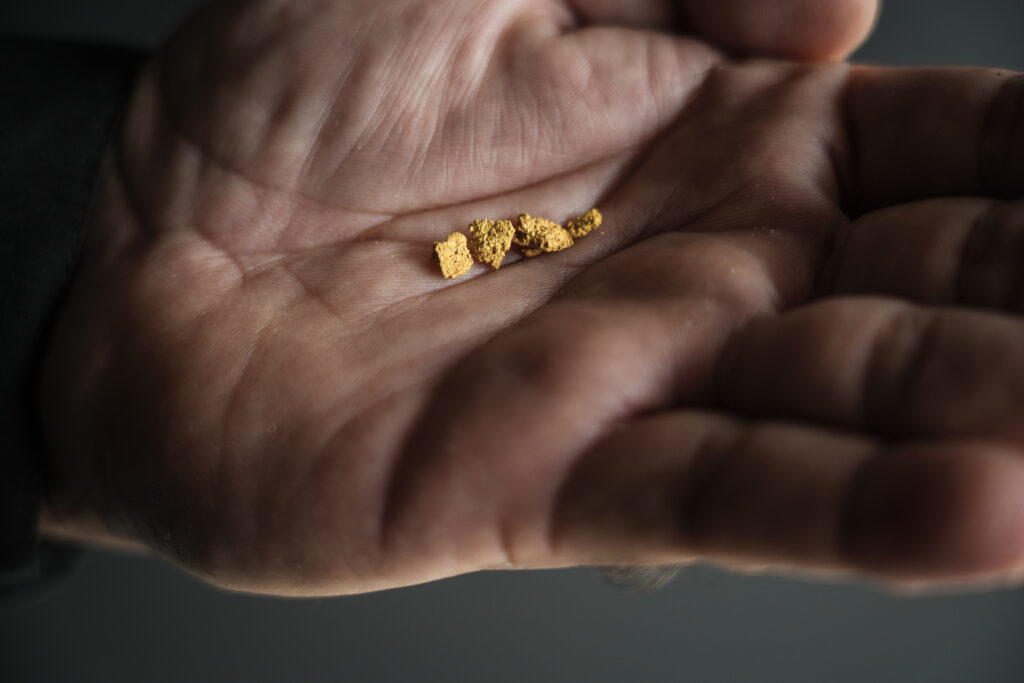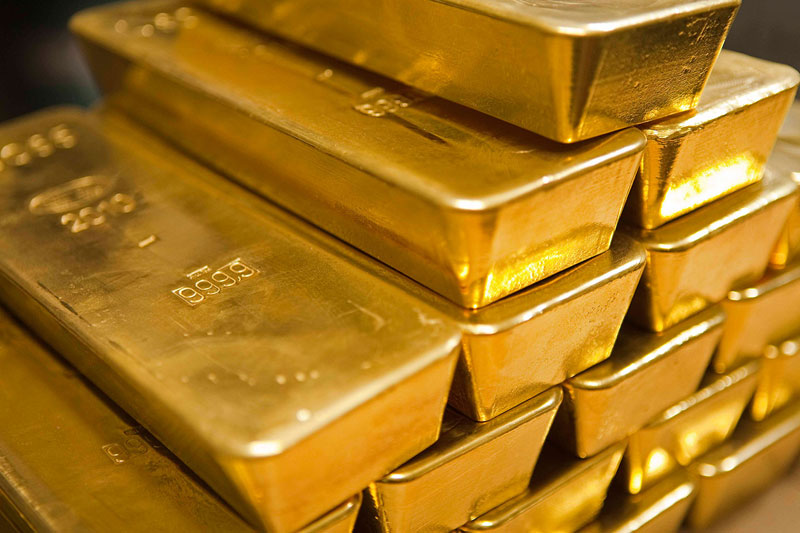One of the world’s major centres of jewellery design and manufacturing, Italy this Friday (5) hosts Europe’s foremost gold fair, Vicenzaoro. Among the pieces on display at the event, which brings together the Made in Italy jewellery, watchmaking and goldsmithing industries, some of the gold originates from Brazil. In 2024, European countries received 42% of Brazil’s gold exports, according to official trade data.
Across the Atlantic, authorities report that gold illegally mined in the Amazon continues to cross the ocean and arrive in Italy, Europe’s leading jewellery exporter. At least three major Italian refineries – Italpreziosi, Safimet and Chimet – have been named in investigations by Brazilian police and customs over the past three years (details below).
For representatives of Italy’s jewellery sector, however, responsibility for failures in the traceability of gold lies with Brazil – a position disputed by environmentalists within Italy itself.
The Confindustria Federorafi (National Federation of Gold Jewellery, Silverware and Jewellery Manufacturers), which represents the sector, told Repórter Brasil by email: “If there is a flaw in the control and traceability systems, this is due to the lack of reliable mechanisms on the part of the Brazilian authorities.”
The federation stressed that Italian companies “comply with current legislation” and said it had no knowledge of refineries in Italy purchasing illegal Brazilian gold. “As far as we are aware, all companies purchase gold accompanied by regular documentation certifying the legal origin of the metal.”

For Martina Borghi, Greenpeace’s representative in Italy, the problem lies precisely in the documents that accompany the gold. “If they are falsified or based on fraud – as frequently happens in Brazil – the entire European system becomes complicit by accepting them without genuine checks,” she said. “The Italian industry profits directly from Amazonian gold. But when it comes to transparency, it hides behind bureaucracy.”
History of irregularities
Recent investigations by Repórter Brasil have revealed how European refineries, particularly in Italy, have been supplied with gold suspected of illegal origin.
In June, a report showed that Italian refinery Italpreziosi acquired the mineral from an importer under investigation for involvement in an illegal gold mining scheme in Pará, a state in the Amazon biome. According to police findings, the criminal network included Brazilian firms that issued fraudulent invoices – sometimes in the names of deceased people – to disguise the real source of the gold. Investigators said part of the gold came from illegal mining on Munduruku Indigenous Territory.
In May last year, Repórter Brasil also reported that another Italian refinery, Safimet – specialised in precious metal refining – had bought a consignment of 5kg of gold dust hidden within 15 tonnes of charcoal. Customs officers at the port of Santos in São Paulo discovered the undeclared gold and blocked the shipment to Italy. Although the gold accounted for just 0.03% of the total cargo, its value was estimated at R$1.9 million – almost three times higher than the declared value of the charcoal.
Two years earlier, Chimet, another Italian refinery, was cited in police investigations as a buyer of gold illegally extracted from mines inside the Kayapó Indigenous Territory, also in Pará. Repórter Brasil revealed that Chimet was listed among the suppliers of tech giants such as Apple, Google and Microsoft.

When approached at the time, all three companies denied wrongdoing. Italpreziosi claimed it had found no evidence of illegality in the gold acquired from the Brazilian importer under investigation. Safimet said it had made only a single purchase from the Brazilian firm targeted by customs and broke off the deal after the seizure. Chimet maintained that its gold purchases were accompanied by documentation certifying legal provenance, while acknowledging “the risk that negative impacts may be associated with the trade and export of minerals from high-risk areas.”
Imports from ‘high-risk’ areas
A study published last August by Brazilian think tank Instituto Escolhas, which researches sectors such as mining, energy and food systems, found that 94% of Brazilian gold imported by European Union countries came from areas classified as “high risk” for illegality.
According to the institute, “high-risk” imports are those originating in the states of Pará, Amazonas and São Paulo. In Pará and Amazonas, gold production is largely driven by small-scale mining operations with weaker environmental licensing than industrial mining. São Paulo, which does not produce gold itself, acts as a channel for production sourced from these mining areas.
“In these regions, there are strong indications of illegality in the extraction and trade of gold, and it is difficult to certify the lawful origin of the metal,” the report stated.
Switzerland: the ‘laundry’ of gold
Despite repeated allegations, Europe’s gold industry continues to operate largely unchanged, experts told Repórter Brasil.
Italian and European legislation has so far acted more as a smokescreen than a real barrier, argued Greenpeace’s Martina Borghi. “The gold supply chain is opaque. It is very easy for illegal gold to be mixed with legal gold and cross borders with apparently proper documentation,” she said.
Last year, Italy was the eighth-largest buyer of Brazilian gold. Much of the gold entering Italy and other European countries, however, first passes through Switzerland. Although not part of the European Union, Switzerland functions as a hub. In 2024, it was Brazil’s second-largest gold export destination, behind Canada.

It is in Switzerland that gold is refined, reclassified and, according to experts, often “laundered”. “Switzerland operates as a laundry for gold extracted from conflict zones or protected areas,” Borghi said. “It leaves Brazil dirty and arrives in Europe with a new face.”
A missed opportunity
Hopes for change rested on the new EU anti-deforestation law (EUDR – the European Union Regulation on Deforestation-free Products), which comes into force in December 2025.
The regulation requires importers of commodities such as timber, cocoa, coffee, soy, palm oil, rubber and cattle to prove that these products are not linked to deforestation. Gold, however, despite also being extracted from areas of forest destruction, was left off the list.
Environmentalists argue that the omission represents a missed opportunity and a dangerous loophole in one of the few concrete tools the EU has created to curb deforestation in supplier countries.
For Italian MP Angelo Bonelli, of the Green and Left Alliance (Alleanza Verdi e Sinistra), this absence undermines any genuine attempt to slow the flow of illegal gold. “Italy should be leading the fight against deforestation gold. Instead, it does the opposite: it protects the industry and abandons the forest,” he said.
Rules exist, but enforcement is weak
Greenpeace is also pressing for stronger enforcement of the EU’s 2017/821 regulation, known as the Conflict Minerals Regulation. In force since 2021, it sets due diligence requirements for the supply chains of gold, tin, tantalum and tungsten from conflict-affected or high-risk areas.
According to Borghi, one of its weakest points is the list of high-risk countries. Switzerland, for instance, is not included. “Of course Switzerland is not a country in conflict, but it is a high-risk area. We want companies, including Italian buyers of gold sourced there, to be compelled to carry out stricter due diligence and to press the country harder to trace the origin of its gold,” she said.
Italy’s national legal framework is also fragile. Only in 2022 did Article 518 of the Italian Penal Code introduce specific penalties for the illicit trade of precious metals. Yet even this legislation makes no reference to protected territories.
“The rules exist, but enforcement is weak,” Borghi explained. “And there is insufficient political will to change that. On the contrary, what we are witnessing is a coordinated effort to weaken environmental laws in Europe. It is as if the ambitious promises of the European Green Deal were being quietly rolled back.”
“The system was designed not to work,” summed up MP Bonelli. “Until Europe – Italy first and foremost – acknowledges its share of responsibility in this cycle, illegal gold will continue to cross the ocean and the Amazon will continue to bleed.”

